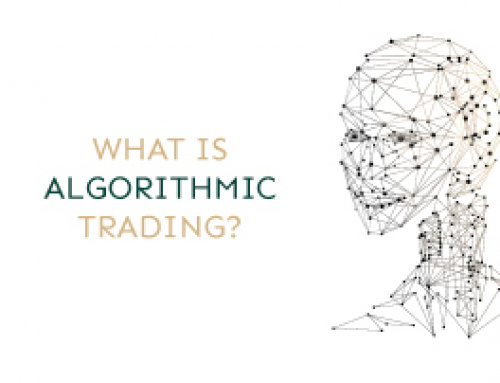The simplest and most understandable meaning of a smart contract is a computer program or code that runs on a specific system. In this case, the decentralized blockchain system is such an area for functioning.
A standard contract, in its usual form, has an important condition for its existence – a guarantee of performance. As a rule, the main guarantees are provided by the state through the creation of local laws and control over compliance with all requirements. In case of violation of norms and rules, the state acts as an arbiter, identifies and punishes violators, and enforces compliance. A huge bureaucratic apparatus is used in the process. At any stage, system failures may occur.
The alternative to a standard contract in the classical sense is a smart contract. In this case, control over the fulfillment of all obligations is entrusted directly to the program – the code recorded in the blockchain of the distributed system.
History of design
The principle of smart contracts was created in the mid-90s. Its developer is an American scientist of Hungarian origin Nick Szabo. He laid the base in 1996 for future self-executing contracts. As Szabo describes, a smart contract is a set of protocols that describe the rules and promises of the parties.
The example described by Szabo is a conventional vending machine. For a certain amount, it gives you the necessary drinks or foods. The algorithm was laid down by the creator of the machine, the execution conditions are controlled automatically.
At that time, there were no practical opportunities for implementing smart contracts in practice. There was also no theoretical basis.
Opportunities have emerged since the inception of the blockchain – a decentralized system. In these conditions, the smart contract has become a reality. By the way, outside of a decentralized system, it is a simple program code.
Mail Principles
A smart contract is a computer code that describes all the terms of a transaction and enters this description into the blockchain. The main form of describing conditions is the “if” operator. For example, if participant 1 transfers money, then participant 2 sends the item. There can be several participants, and the conditions can be complex.
Using smart contracts, you can organize the exchange of any assets, including:
- money;
- securities;
- goods;
- real estate;
- works of art;
- other assets.
Thanks to the use of a decentralized ledger for recording and storing contract terms, they cannot be falsified, deleted, changed. The anonymity of the contract is ensured by encryption.
One of the features of smart contracts is that they focus exclusively on the digital world. The main drawback and problem of smart contracts is the alignment between the digital ecosystem and the real world. For communication, “oracles” are used, special programs that provide the digital system with information from the real world.
The main parameter of smart contracts that allows you to assess the capabilities of the blockchain is Turing completeness. The physical essence of a parameter is the ability to perform any function. The most complete system – capable of implementing any program.
The Bitcoin blockchain is implemented in Script, a programming language that is not Turing complete. In this regard, Bitcoin enables simple smart contracts to work.
Ethereum provides Turing completeness. Powered by the Solidity language, which allows complex algorithms to be implemented. Other platforms are also used to implement smart contracts:
- Stellar;
- Aeternity;
- EOS;
Area of use
A smart contract is a program code that runs in a distributed environment without centralized management. There is no supervisory authority, the system itself determines when it is necessary to fulfill this or that condition, following the laid down the algorithm. This opens up huge prospects for smart contracts on the blockchain.
Main areas of application:
- financial sector;
- logistics;
- healthcare;
- insurance;
- other areas of activity.
An interesting area of using smart contracts is clearing – non-cash settlements between different counterparties. In reality, for such an operation, the services of a special clearing company are used, which performs complex calculations in order to minimize the costs of clients for transferring money. Smart contracts will help a clearing company to significantly simplify all operations and avoid possible errors in calculations. The smart contract will provide automatic payments between participants, subject to the specified conditions and rules. You can take into account transactions and agreements in the blockchain registry.
The logistics industry is another huge area for smart contracts. Manufacturers and carriers can be combined into a single blockchain with access to the information they need. At the same time, automatic distribution of payments takes place, the delivery of goods after mandatory approval and endorsement with a digital signature.
In medicine, smart contracts will help create a unified database. In this case, limited access with a multisignature is possible – the record can be opened only after the consent of the patient and the doctor. This approach will ensure the conduct of surveys, research, consultations.
In the IoT, smart contracts provide simple and understandable options for the exchange of information between various devices – smartphones, cars, refrigerators, air conditioners.
Benefits
Smart contracts have many advantages over the current state of affairs. The most significant benefits include:
- decentralization – there is no need for additional specialists to conclude a deal;
- security – the encryption system ensures the safety of data stored in the distributed network;
- cost-effective – no intermediaries are needed;
- information processing time is significantly lower due to the automation of many processes;
- no errors, the human factor does not affect the process.
Disadvantages
There are also disadvantages that largely negate the advantages of smart contracts, explaining the lack of implementation in practice. Significant disadvantages:
- lack of legal support for smart contracts – at the legal level, blockchain, cryptocurrency, smart contract are not fixed;
- complex implementation, in particular, communication with the real world – “oracles”, programs are used to transfer the necessary information;
- a smart contract cannot be changed or canceled – a new one must be created.
Also, the disadvantages can be attributed to distrust of new technologies that are not entirely clear to most people. Many areas of activity are traditionally conservative in documenting transactions and it is difficult to make any changes to the established order of things.
Conclusion
Despite the flaws, smart contracts have a future. Governments of different countries, the management of large companies, and banking institutions are experimenting with blockchain technology. Technologies are improving, investments in the digital world are growing.






Leave A Comment